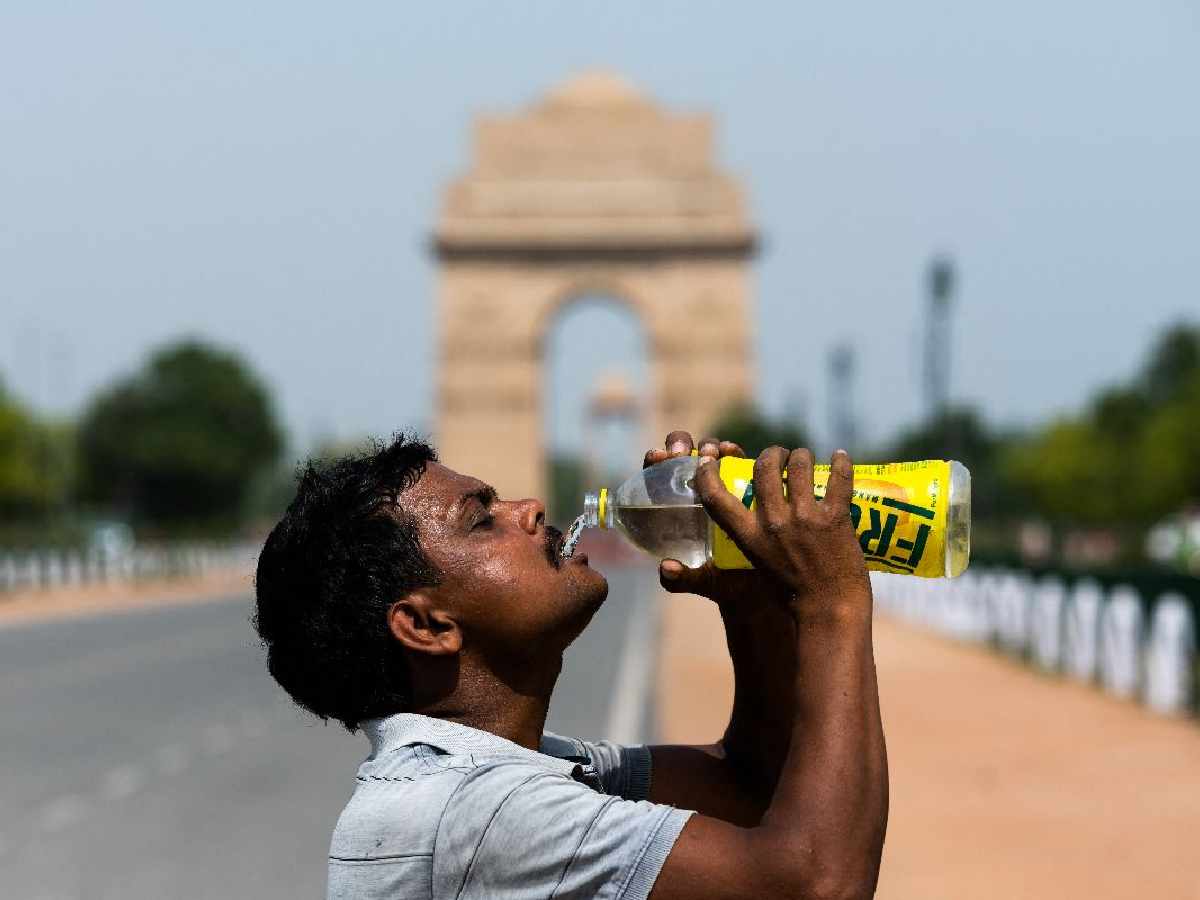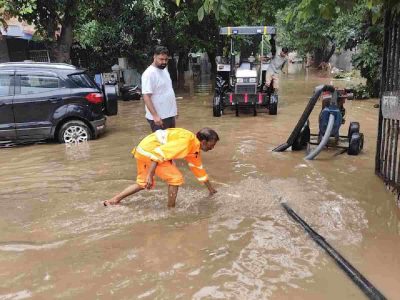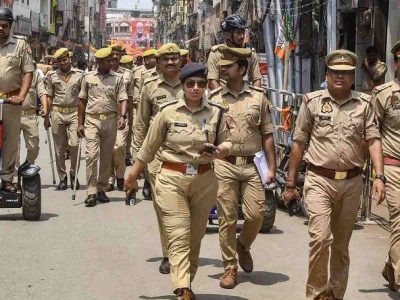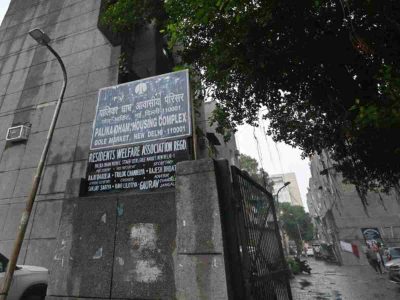Delhi weather: The national capital on Saturday morning recorded a minimum temperature of 34.8 degrees Celsius, 5.6 notch below the season’s average, according to the India Meteorological Department (IMD).
The IMD has forecast a cloudy sky with thunder and lightning on Saturday and Sunday, with the maximum temperature expected to settle around 37 degrees Celsius.
Relative humidity was recorded at 64 per cent at 8:30 am.
The air quality was recorded in the “poor” category at 9 am on Saturday, with an Air Quality Index (AQI) reading of 204, the Central Pollution Control Board (CPCB) data showed.
According to the CPCB, an AQI between zero and 50 is considered ‘good’, 51 to 100 ‘satisfactory’, 101 to 200 ‘moderate’, 201 to 300 ‘poor’, 301 to 400 ‘very poor’, and 401 to 500 ‘severe’.
Read more
Delhi: Tihar Jail cares for 31 children living with jailed mothers
Delhi: For some children, life begins not in the comfort of a home but within the confines of a prison, behind towering walls and iron gates. Born to mothers serving time, their earliest memories are not of playgrounds or parks, but of barred windows and uniformed guards.
Currently, 31 children, both boys and girls, are living with their inmate mothers in Delhi’s high-security Tihar and Mandoli jails, an official said. The prison administration ensures that these children do not suffer due to the circumstances of their birth. “From playschool to regular medical check-ups and vaccinations, every need of the child is taken care of. We try to provide an environment where their basic developmental needs are met,” the official said.
Menstrual Hygiene Day | We must normalise menstruation, not hide it: AIIMS gynaecologist
Observed globally on May 28, Menstrual Hygiene Day is a call to break the stigma and silence around menstruation. Despite growing awareness and wider access to sanitary products in India, millions of women and girls continue to face poor menstrual hygiene, inadequate education, and untreated health conditions. From adolescent anaemia to infections that threaten fertility, the consequences are wide-ranging and serious. Patriot spoke with Dr Neena Malhotra, Head of the Department of Gynaecology at the All India Institute of Medical Sciences (AIIMS), New Delhi, about the clinical realities, prevailing taboos, and the urgent need for systemic change.





